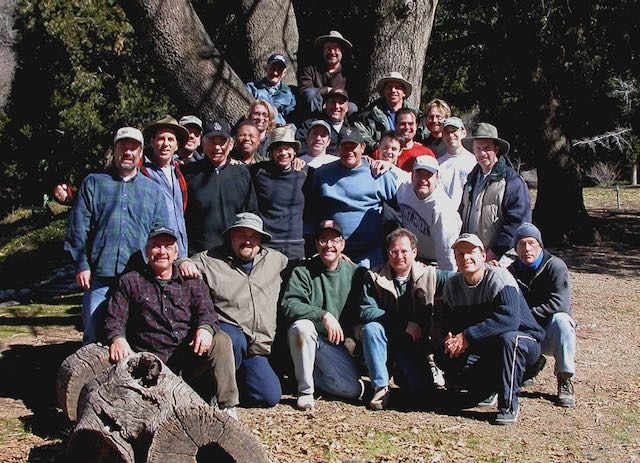Men’s Center Offers Hope for Father’s Day
For many women, the greatest mystery in the world is sitting right across the dinner table from them. Men: what are they thinking? Why do they act as they do? And for the man who seems to have “everything” — good job, strong marriage, great family — why does he seem so blue and confused so much of the time?
For men’s counselor Wayne Levine, posing the questions is the first step towards recognizing that men have special needs often unmet within the lives they create with their families. What men need, he says, is other men in their lives.
“We need to be fathered, not mothered,” says Levine, who runs the West Coast Men’s Center in Agoura Hills. “Mothering is rescuing, reliving pain, focusing on feeling better. We need that, we love that, but it’s not what men’s work is about.”
Many men, Levine says, never got the fathering they needed growing up, and they grew older without necessarily ever becoming cognizant of reaching manhood. On his own website, Levine says he felt he was a boy until he was in his early 30s. What men’s groups do, he says, is provide some of that fathering from other men that ultimately helps them become better husbands, fathers and friends.
“Fathering is nurturing and being compassionate, but it’s also about kicking-butt and holding men accountable to the changes they say they want to make,” Levine says.
A Lifetime Gift
This Father’s Day, Levine suggests a great gift men can give themselves is to find a way to form a strong, trusting relationship with another man.
“That’s a gift that will serve him for the rest of his life,” he says.
It’s not easy for men to make their way to the kinds of help offered by Levine’s center. Men, he says, are trained from an early age to ignore their pain, and that asking for help is a sign of weakness. But the frustration has to come out somewhere, and usually in unhealthy ways: over-work, substance abuse, domestic violence. Many of the men working in groups have come to crisis points in their lives, but Levine says all men would benefit from such work.
“I don’t know a man who wouldn’t benefit from having other men in their lives,” he says.
Men’s groups, Levine stresses, are not about woman-bashing. Often, he says, women don’t even come up in conversation. But what men gain from having other men to talk to will ultimately benefit any marriage.
“Good women encourage men to do this kind of work, because they understand how it can help,” Levine says. “When men find the courage to deal with some of these core issues, a lot of other stuff gets fixed along the way.”
Thoreau wrote: “Most men lead lives of quiet desperation and go to the grave with the song still in them.” Levine says he sees these men all over the place: going to and from their home and work, smile pasted on their lips, and he knows they could use a hand.
“Most men don’t even know they need help,” he says. “They feel trapped but can’t even imagine seeing a change. Our mission is to get the word out that tremendous changes can take place if they’d only aks for help. As people, we’re not designed to do that alone.”

Post a comment